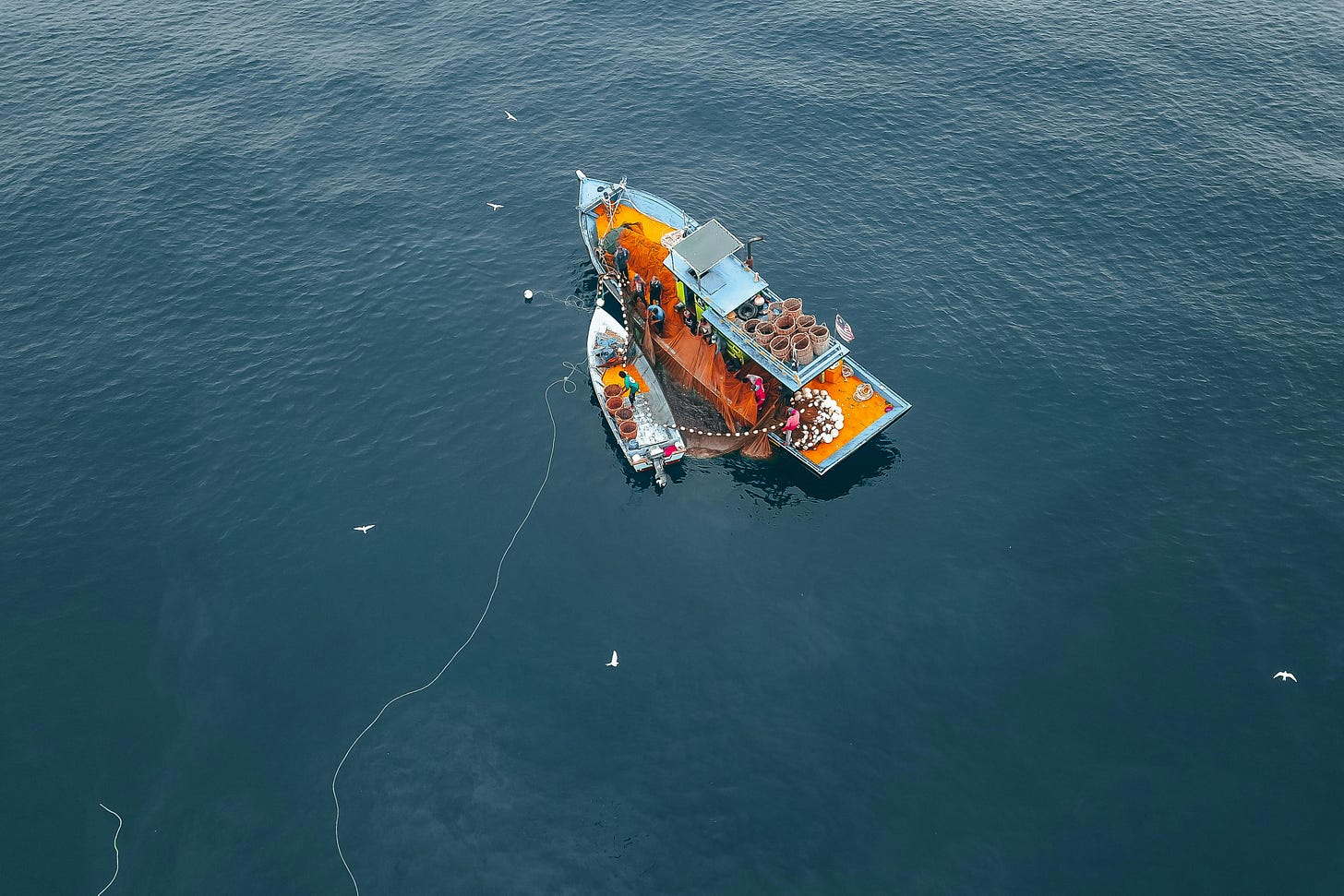Oceans at 'tipping point' and time is running out to save them
From calls to ban bottom trawling to a global push to ratify the High Seas Treaty, the UN Ocean Conference has brought oceans to the top of the global agenda
Delegates from across the world are currently gathered in Nice, in the south of France, at the UN’s Ocean Conference.
Speaking on its second day, António Guterres, the UN’s Secretary-General, warned that “greed” was to blame for the devastation being wrought on the oceans. He said that the seas are facing a “tipping point” beyond which “recovery may become impossible”.
Guterres laid out four priorities for the future: transform ocean harvesting (read fishing), tackle plastic pollution, fight climate change, and enforce the High Seas Treaty.
There have been some positive developments. You’ll read below that the UK government is considering banning bottom trawling – a particularly destructive form of fishing. Pressure is also building on other nations to do the same. Although there are a lot of “coulds” floating around in the UK’s statement.
A general target has been set to protect 30 per cent of the world’s oceans by 2030. A crucial tool in that process is the High Seas Treaty. Even though it sounds like something from Pirates of the Caribbean, the High Seas are very real. They are seas that lie outside national jurisdictions. However they remain unprotected. I previously wrote about this here.
One of the biggest steps nations could take this week to protect oceans is ratifying this treaty. An additional 18 countries –including Albania, Denmark and Vanuatu – chose this week to take that step this week, bringing the total number to 49. There is still a long way to go.
You can read more about the UN Ocean Conference here.
UK: The government is considering banning bottom trawling – a style of fishing which is particularly destructive to wildlife and ocean habitats – in English waters. The statement came as the UN Ocean Conference began with the protection of a third of international waters a key aim of discussions. The practice was highlighted in the latest programme made by Sir David Attenborough which showed a net destroying the seabed and indiscriminately scooping up marine animals. (BBC)
USA: American researchers have used an AI programme to uncover the airport hotspots supporting the global trade in wild animals. The study predicted more than 300 airports which which are potentially involved in wildlife trafficking despite the absence of seizure data. Eleven were described as “hidden hotspots” including airports in the USA, China, Italy and Mexico. (Phys)
Global: Dehorning rhinos is effective in reducing poaching, according to a new study on the controversial practice. Hundreds of rhinos are killed for their horns every year. This has led to some conservationists “dehorning” them – cutting off their horns to remove the reason for poaching. This practice achieved a 78 per cent reduction in poaching, according to the researchers. However, more than 100 were still targeted for the meagre amount of horn left. (Phys)
USA: An undercover investigation by the organisation Humane World For Animals exposed the illegal sale of ivory in Pennsylvania. Investigators found items obtained from elephants, whales, warthogs and hippos, as well as the taxidermied head of a giraffe. Of 63 stores and online retailers investigated, 37 had ivory or other wildlife products for sale, the organisation said. (CBS News)
India: Police arrested a man in eastern India accused of attacking a whistleblower who exposed illegal sand quarrying and posted photographs on Facebook. The posts were quickly picked by authorities. The victim was then allegedly kidnapped and taken to a location where he was attacked. Police are investigating the assault and the claims of illegal sand extraction. (Times of India)
China: Chinese fishing vessels are responsible for 44 per cent of the global fishing footprint according to the organisation Oceana. Its analysis of global fishing activity showed that the 57,000 Chinese ships are a dominant force in waters across the globe. The Chinese fleet has been linked to illegal and unregulated fishing as well as human rights abuses at sea. (Oceana)
Global: The founder of a nonprofit using undercover methods to investigate wildlife trafficking has said the trade is supported by a “flying money” laundering scheme. In an oped he highlights the role that a Chinese system of laundering supports wildlife crimes across the globe. Chinese brokers help traffickers access cash for their illegal trade, he claims. (Mongabay)
USA: Officers in California say they have busted a caviar trafficking ring involving “well-organised” criminal networks. The bust is part of a wider crackdown on sturgeon and salmon poaching along the Sacramento River. In addition to illegally harvested caviar, officers seized 150 pounds of salmon roe, suggesting as many as 75 salmon may have been illegally harvested. (Newser/Undercurrent News)
UK: There have been calls for a public inquiry into one of Europe’s largest illegal dumps in Northern Ireland. The Mubuoy dump is roughly the size of 70 football pitches and has become contaminated as a result of the illegal waste disposal that is alleged to have happened there. Environmentalists described it as a “bubbling lake of toxic waste” and called for an inquiry. (BBC)
Canada: Canadian retailers are failing to root human rights abuses at sea out of their supply chains, according to a major new report from a watchdog. SeaChoice claimed its findings show that voluntary efforts to address forced labour in the fishing industry are not enough to halt the practice. Only one of the retailers it assessed “passed” its standards. (Seafood Source)
Malaysia: Specially-trained dogs have intercepted wildlife worth more than a million US dollars at Malaysia’s busiest airport in Kuala Lumpur since their introduction two years ago. Air travel is a frequently used medium of transport by wildlife traffickers, with illicit cargo often hidden in passenger luggage. (Yahoo)


